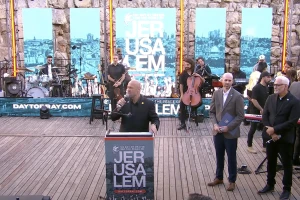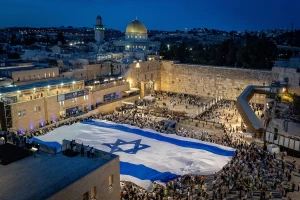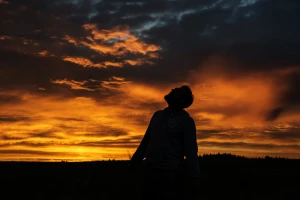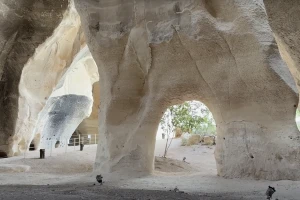Tens of thousands receive 'Priestly Blessing' at Jerusalem's Western Wall
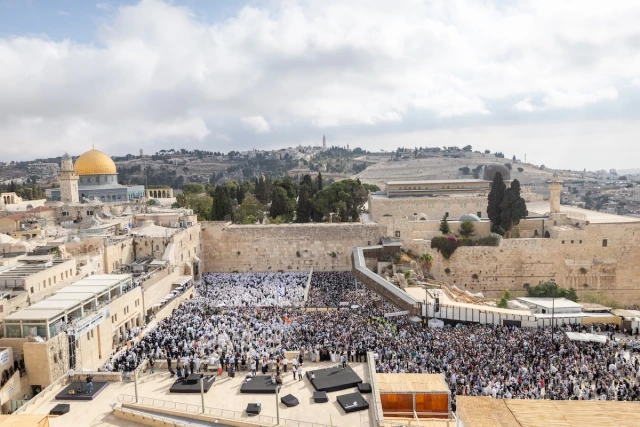
Tens of thousands gathered at the Western Wall on Thursday morning to receive the Birkat Kohanim or Priestly Blessing. This same blessing – known to churchgoers as the “Aaronic Benediction” – is recited daily in some synagogues around the world, depending on which tradition one follows. In Israel, it is performed publicly only twice a year, during Passover and the Feast of Tabernacles, drawing thousands of worshippers to the Western Wall.
The Priestly Blessing ceremony was first introduced in 1970, during the War of Attrition. It was initiated by Rabbi Menachem Mendel Gefner, a Jerusalem resident moved by the difficult circumstances in Israel at the time. Seeking spiritual uplifting, he established what would become an enduring tradition.
The Priestly Blessing, found in the Book of Numbers, is a biblical command instructing priests to bless the people of Israel. Comprising three verses, it is also known as the “threefold blessing.”
“The Lord bless you and keep you; The Lord make His face shine upon you and be gracious to you; the Lord lift up His countenance upon you and give you peace.” (Numbers 6:24–26)
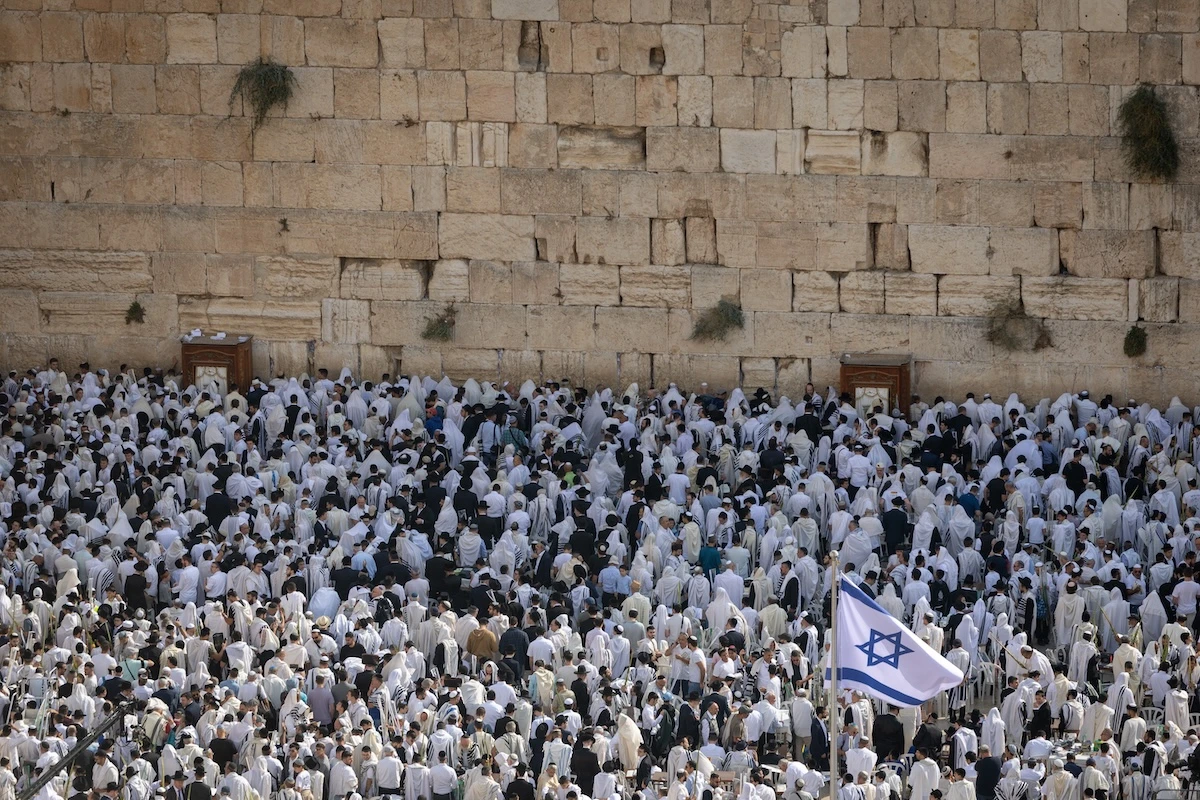
Before reciting the Birkat Kohanim in a synagogue, the kohanim (priests) prepare by washing their hands and removing their shoes. They then approach the front of the synagogue, cover themselves with their tallits (prayer shawls), face the congregation, and recite a blessing, thanking God for “sanctifying us with the sanctity of Aaron and commanding us to bless His people Israel with love.”
Next, they raise their hands beneath their tallits in a distinctive formation. While the exact positioning of the fingers varies according to different traditions, the general custom is to separate them in a way that creates spaces resembling “windows.”
The chazzan (cantor) then begins the blessing, chanting each of the 15 words of the blessing one at a time. The kohanim repeat each word after him, often preceded by a short, traditional melody in many communities.
The experience at the Kotel (Western Wall) is both unique and memorable as it mirrors what many experience in their synagogues – and it is not limited to Jewish visitors. People of all faith backgrounds and nationalities are welcome to witness and receive this special blessing before heading out to enjoy the many joyful activities the city of Jerusalem has to offer during the Feast of Tabernacles.

The All Israel News Staff is a team of journalists in Israel.
You might also like to read this:


